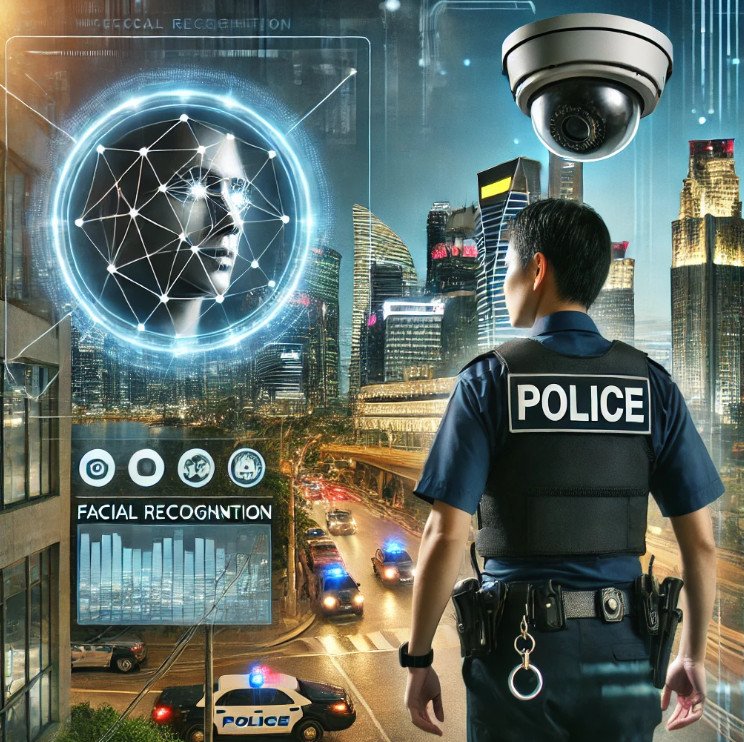The Rise of AI in Criminal Justice

Police the Courts and the use of Artificial intelligence (AI) Artificial intelligence (AI) is revolutionizing the criminal justice system in ways previously unimaginable. From predictive policing technology to advanced tools for evidence analysis, AI is transforming law enforcement and courtroom processes. While it offers groundbreaking potential, AI’s integration raises ethical, legal, and practical concerns. This article delves into how AI is reshaping criminal justice, particularly in regions like New South Wales (NSW), and explores its promises and pitfalls. What is Predictive Policing Technology? Predictive policing uses AI to analyze historical crime data, identifying patterns and forecasting potential criminal activity. How It Works: Benefits: Challenges: AI Criminal Investigations: Revolutionizing Evidence Analysis AI is streamlining criminal investigations by analyzing evidence more efficiently and accurately. Applications in Investigations: Advantages of AI in Criminal Investigations: Risks: AI in Criminal Justice NSW: A Regional Perspective New South Wales (NSW) is leading the charge in implementing AI-driven criminal justice reforms. Key Initiatives in NSW: Regional Benefits: Potential Concerns in NSW: Ethical Concerns in AI Criminal Justice Tools Ethics is a critical challenge in AI’s adoption within criminal justice systems. Common Ethical Issues: Real-Life Implications: Solutions to Ethical Challenges: Legal Challenges to AI Decision-Making in Courts AI tools like risk assessment algorithms are increasingly used in sentencing decisions, bail hearings, and parole evaluations. Key Legal Issues: Landmark Cases: Recommendations: Benefits of AI in Criminal Justice Systems Despite challenges, AI offers immense benefits to criminal justice systems: AI’s Role in Crime Prevention AI is increasingly instrumental in proactive crime prevention efforts: AI and Human Rights in the Criminal Justice Context The use of AI must align with international human rights standards. Key Considerations: Case Studies: AI Applications in Criminal Justice Predictive Policing in Los Angeles: Reduced burglaries by 20% in specific areas. Facial Recognition in London: Helped identify suspects in crowded public events. AI’s Growing Influence in the Criminal Justice System in Australia Artificial intelligence (AI) is making a significant impact on Australia’s criminal justice landscape. Here’s a closer look at how AI is shaping various aspects of law enforcement and legal processes across the country: Government Investments in AI DevelopmentThe Australian Government has committed over A$100 million to advance AI expertise and capabilities. This investment reflects the nation’s dedication to integrating AI into various sectors, including criminal justice. Adoption Across Criminal ProcessesAI is being implemented in crime deterrence, investigations, and even sentencing. These technologies aim to improve efficiency and accuracy in addressing criminal activities while streamlining legal proceedings. Queensland’s Domestic Violence InitiativeThe Queensland Police are trialling AI algorithms to identify high-risk family and domestic violence offenders. Early results indicate a promising reduction in repeat offences. NSW’s Face Matching Service ProgramThe New South Wales Police Force is leveraging AI to analyse CCTV data using the Face Matching Service program, enhancing their ability to identify suspects quickly and accurately. Ethical AI Development Awareness in NSWAs of July 2024, there has been increasing recognition in NSW of the importance of responsible and ethical AI development. This focus aims to balance innovation with fairness and transparency. The Evolution of AI in NSW’s Criminal Justice System: A Journey Through Time New South Wales (NSW) has been a trailblazer in adopting AI technologies within its criminal justice system. Over the past three decades, the state has progressively integrated AI to improve public safety, enhance judicial processes, and streamline correctional services. This timeline highlights NSW’s pivotal steps in leveraging AI for law enforcement and justice while addressing ethical challenges and ensuring accountability: 1990s: Early Adoption of Digital Technologies 2015: Predictive Policing Trials 2020: Launch of the NSW Artificial Intelligence Strategy 2022: Introduction of the AI Assurance Framework 2023: Smart Prisons Initiative 2024: Supreme Court Guidance on Generative AI 2024: Expansion of Predictive Policing 2025: Enhanced Use of AI in Sentencing Future Trends in AI Criminal Justice Technology FAQs: Common Questions About AI in Criminal Justice Conclusion: Embracing a Responsible AI Future AI’s integration into criminal justice systems holds transformative potential, enhancing efficiency, accuracy, and fairness. However, ethical and legal safeguards are critical to harness its power responsibly. As technology advances, a balanced approach will be essential to ensure justice, equity, and innovation coexist harmoniously. Contact Us at National Traffic Lawyers For expert legal assistance with NSW traffic matters, contact National Traffic Lawyers. Our team specialises in protecting drivers’ rights and providing representation. If you are required to go to court or need assistance, fill out our online form for a free consultation.
